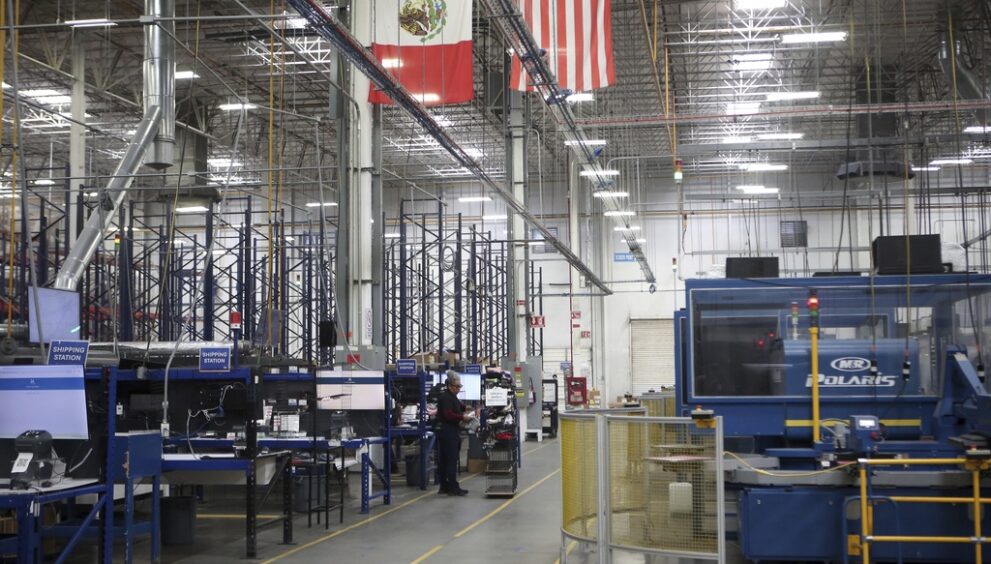Negative impacts of Trump’s tariffs on economy and trust

In the popular 2002 movie “My Big Fat Greek Wedding,” the character Gus from the Portokalos family uses Windex as a remedy for various health problems, demonstrating how traditional beliefs are still prevalent in everyday life.
Within the initial weeks of President Trump’s second term, tariffs are being employed similarly to Windex in the movie, being seen as a solution to a wide range of societal and economic issues. However, the reality is that threats and implementation of tariffs have serious consequences in real-world scenarios.
It is necessary to acknowledge Trump’s well-intentioned objectives – addressing immigration concerns, combating drug overdoses, and boosting American manufacturing. Despite these noble goals, his reliance on tariffs as a means to achieve them may ultimately harm American businesses and consumers.
Recently, Trump imposed a 25 percent tariff on Canadian and Mexican imports (with 10 percent for energy imports) and an additional 10 percent tariff on Chinese imports. His justification includes concerns over illegal immigration, drug trafficking, and trade deficits. While the enforcement of Canadian and Mexican tariffs has been delayed, the Chinese tariffs remain in effect.
Predictably, countries affected by these tariffs have begun considering retaliatory measures. Notably, Canada was compiling a list of products that could impact regions supporting Trump before the delay. China, aside from retaliatory tariffs, launched an antitrust inquiry into Google. There is a possibility of further escalations in tariffs as a form of confrontation between nations.
Several studies will emerge detailing the potential consequences of these tariffs on the U.S. economy over time. Initial calculations from the Yale University Budget Lab suggest that these tariffs, coupled with possible retaliation, could lead to a 0.76 percent rise in U.S. inflation. This increase could amount to an average real income loss of $1,245 in 2024 dollars.
While President Trump is aware of the potential price hikes, he seems to overlook the primary reason for his election – the American public’s discontent with rising prices. If inflation does not concern him, the question arises on how destabilizing the economies of crucial allies aligns with his goals. Developing robust borders would be better achieved through nations with adequate economic capabilities.
By persistently threatening to weaken these countries and unilaterally altering deals deemed significant, Trump risks the U.S. losing its reputation as a reliable partner. Such actions could lead to discussions on reducing economic ties with the U.S. among other nations.
Considering that a significant portion of the world’s purchasing power and consumer base lies outside the U.S., and emerging economies are eager to gain market share, these strategies may prove counterproductive in the long run.
Trump has an opportunity to achieve his objectives and leave a lasting impact. His fiscal and regulatory policies could significantly enhance the competitiveness of American businesses. However, the uncertainty surrounding the U.S. and global economies, stemming from his actions, can have adverse effects on political and economic stability.
As evidenced by market reactions to the tariff announcements, escalating uncertainty may jeopardize financial stability by increasing risks and delaying crucial consumption and investment decisions. It is crucial for President Trump to showcase refined negotiation skills and demonstrate that the U.S. is a reliable and trustworthy partner on the global stage.
Pinar Çebi Wilber, Ph.D., serves as the chief economist and executive vice president of the American Council for Capital Formation.





















































































































































































































































































































































































































































































































































































































































































































































































































































































































































































































































































































































































































































































































































































































































































































































































































































































































































































































































































































































































































































































































































































































































































































































































































































































































































































































































































































































